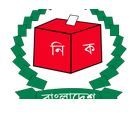
The Election Commission could not connect the upazila server stations with the central database of voters even after two years of its effort.
On the contrary, it has cancelled the entire process.
Allegation has it that the commission has cancelled the process as it could not give the job to the organisation of its choice.
Officials said it would take at least another two years to complete the process if the commission float the tender for the work anew, so a voter must travel all the way up to the capital to have their national identity cards corrected over the next two years where there is a fear of falling prey to the brokers.
In 2011, the commission undertook a project called ‘Identification System for Enhancing Access to Service’, better known as IDEA, to provide voters with advanced national ID called ‘Smart Card’ and for Virtual Private Network (VPN) connections.
To implement the project, the commission also signed an agreement with the World Bank for getting a loan of $19.50 crore.
According to the project plan, the work of setting up VPN connections was supposed to be concluded by June this year. Once the VPN connections are set up, voters would have the access to any national ID related services from their respective upazilas.
The VPN connection is also an imperative for introducing Smart Card.
The commission’s NID wing solicited tender on 17 September in 2013 and the tenders were opened on 19 December.
Telecommunication transmission network service provider Fiber-at-home submitted the tender of Tk 42,21,80,000 for setting up VPN connections, another firm Digital Connectivity offered the job in Tk 43,77,85,000, Banglaphone sought Tk 49,99,07,000, Link-three Technologies wanted Tk 80,85,74,000 and ADN-GP-Agni-TVN submitted the tender of Tk 83,61,22,000.
Conditions attached with the tender for a certain organisation:
The Election Commission attached certain conditions while floating tender so that the organisation it likes can get the job. It said the participating organisations should either have permit for laying out optical fibre network or the Nationwide Telecommunication Transmission Network (NTTN) license.
But the law stipulates only the NTTN license holders would be able to set up the optical fibre network.
EC officials said the commission has added the word ‘permit’ in its condition only to pave the way for participation of Banglaphone company in the tender process as Banglaphone had only the permit at the time of the tender.
The Bangladesh Telecommunication Regulatory Commission (BTRC) issues such permit on temporary basis.
Sources in the BTRC said the organisation which would get the job for setting up VPN connections would need to work with the EC for at least two years which is not possible for a company having only permit as such permit is issued only for one or two years.
Earlier, the Banglaphone set up optical fibre across the country without taking any approval from the authorities concerned and rented them out to cell phone operators.
Once it was known to all that Banglaphone laid optical fibre without approval, the BTRC had given it temporary permit for two years, the tenure of which ended on 21 April this year.
Some of the BTRC officials raised question why the EC in its tender advertisement allowed the companies having only permit to submit tender even knowing that only a permit-holder company would not be able to carry out the job.
According to BTRC documents, Banglaphone is an Internet Service Provider license holder and it could not be an NTTN license holder legally.
Despite the fact, the company applied to the BTRC for NTTN license but the posts and telecommunication ministry rejected its application.
In its last bid, the company tried to extend the tenure of its ‘permit’. But the BTRC rejected its plea on 11 June, too.
EC officials said the commission scraped the VPN tender process on 14 May after it became sure that it would not be able to give the tender to Banglaphone.
The EC has wasted two years time only to give the job to Banglaphone.
Sources in the commission said, the election commissioners drew the attention of the chief election commissioner, Kazi Rakibuddin Ahmad, to this irregularity of the NID wing, but the CEC made no response to the matter.
When approached, the CEC told Prothom Alo that the World Bank has asked them to float the tender anew as there is no sufficient time to take the service from the bidder.
When contacted, Banglaphone managing director Amzad Hossain Khan said the ministry rejected their application for the NTTN license “unfairly without any reasons.”



